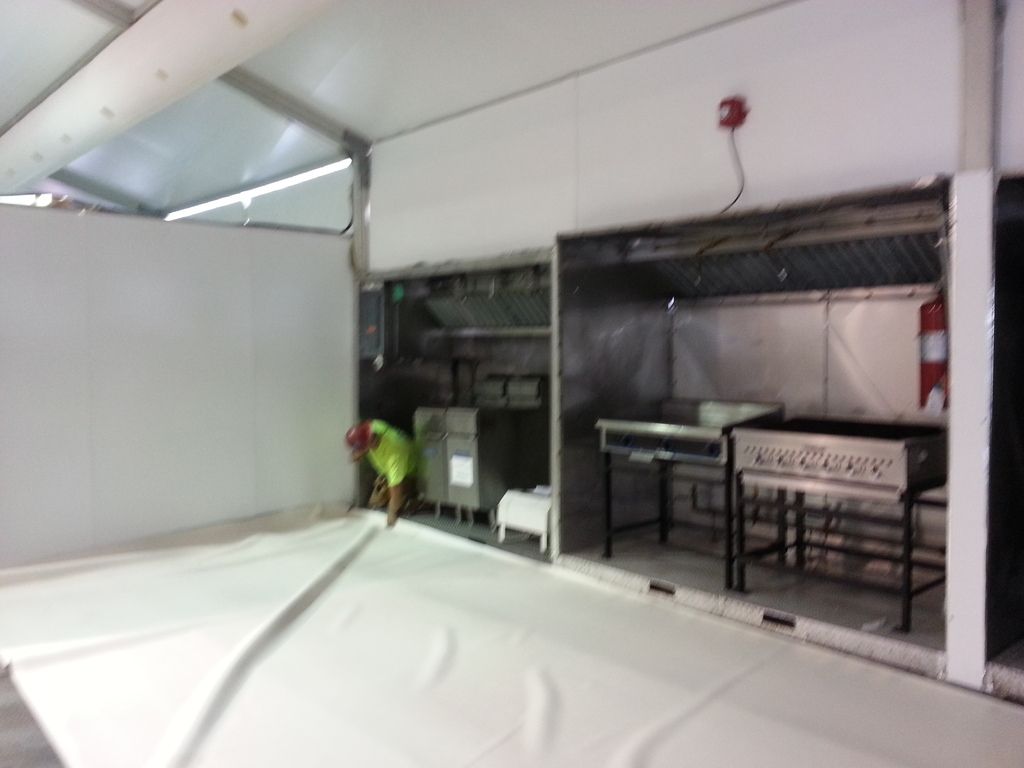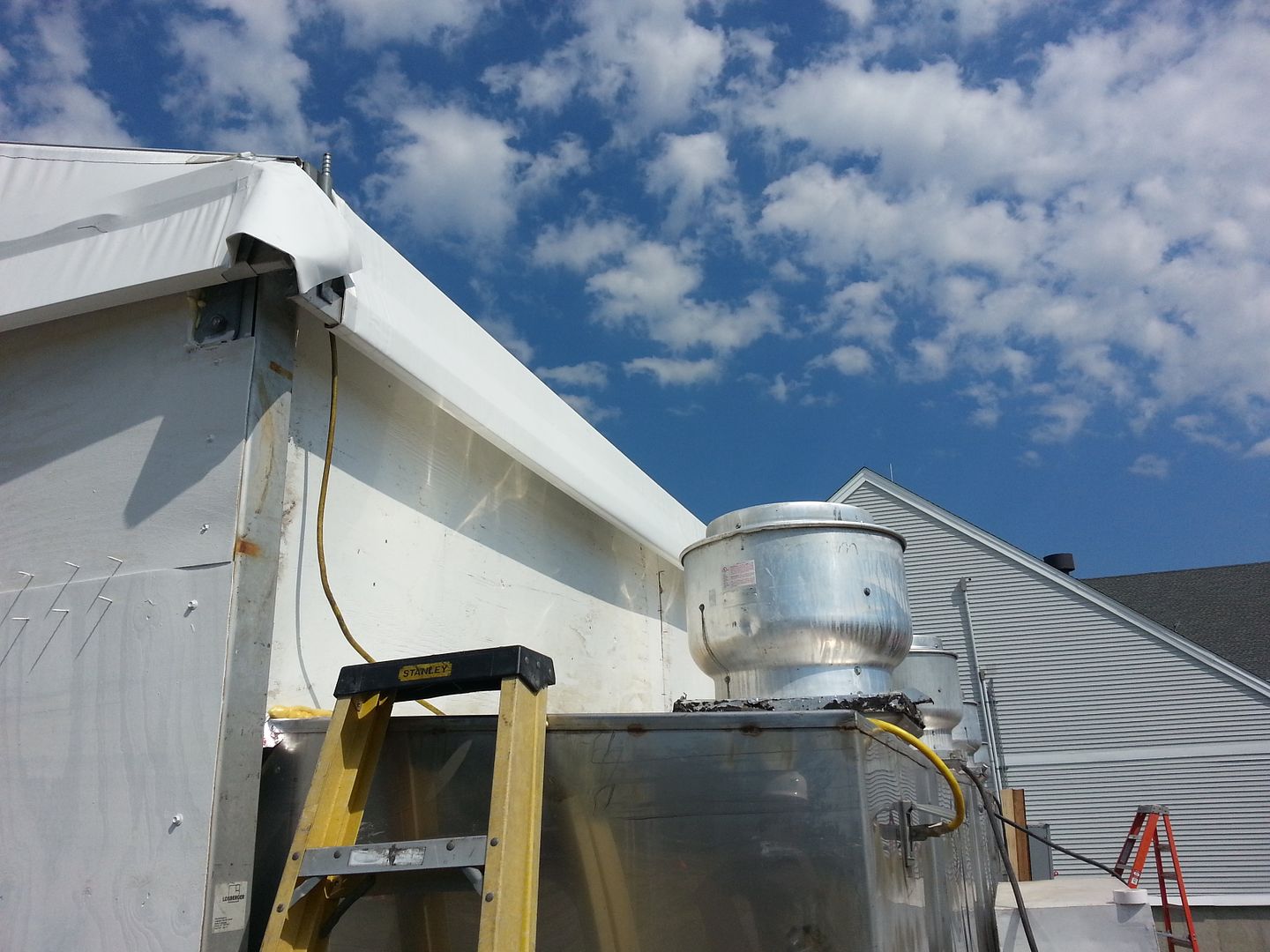twd22285
Member
Hello.
Looking for some input regarding cooking under tents at a carnival or fair. This fall, we had a food vendor who set up a griddle outside of his type 1 hood within his trailer. He was cooking meats and vegetables on it (grease laden vapor at a commercial rate). After informing him of the code that would require a type 1 hood and suppression system, he asked why the tents were allowed to set up deep fryers and other cooking operations without the same requirements. Good point. After looking into chapter 31 (Section 3104.7, 3104.15.1-7) of the 2015 IFC, it appears that they in fact cannot do so without meeting all the requirements a mobile trailer or structure would have to meet. That is of course until you read the commentary for 3104.15.1. In which it states in one paragraph that "Literally speaking, there is nothing in ch 31 that would specifically exempt cooking operations in any tent or membrane structure from the ventilation of fire suppression system requirements of the code or IMC for commercial cooking appliances that produce grease or smoke." Then in the very next paragraph states that “It should be noted, however,….temporary facilities such as tents or membrane structures present a unique circumstance in which the strict application of code requirements to what is, in all likelihood, a temporary operation may not be practical or desirable.” I feel like the commentary is giving the fire code official an out in a way. It goes into more detail than this but I’ve already ran long here and I don’t know the forum rules to know whether or not I am allowed to scan and attach the commentary (I assume not). In any case, what is your opinion on how to enforce this chapter at a temporary event? Thank you in advance
Tony
Looking for some input regarding cooking under tents at a carnival or fair. This fall, we had a food vendor who set up a griddle outside of his type 1 hood within his trailer. He was cooking meats and vegetables on it (grease laden vapor at a commercial rate). After informing him of the code that would require a type 1 hood and suppression system, he asked why the tents were allowed to set up deep fryers and other cooking operations without the same requirements. Good point. After looking into chapter 31 (Section 3104.7, 3104.15.1-7) of the 2015 IFC, it appears that they in fact cannot do so without meeting all the requirements a mobile trailer or structure would have to meet. That is of course until you read the commentary for 3104.15.1. In which it states in one paragraph that "Literally speaking, there is nothing in ch 31 that would specifically exempt cooking operations in any tent or membrane structure from the ventilation of fire suppression system requirements of the code or IMC for commercial cooking appliances that produce grease or smoke." Then in the very next paragraph states that “It should be noted, however,….temporary facilities such as tents or membrane structures present a unique circumstance in which the strict application of code requirements to what is, in all likelihood, a temporary operation may not be practical or desirable.” I feel like the commentary is giving the fire code official an out in a way. It goes into more detail than this but I’ve already ran long here and I don’t know the forum rules to know whether or not I am allowed to scan and attach the commentary (I assume not). In any case, what is your opinion on how to enforce this chapter at a temporary event? Thank you in advance
Tony


